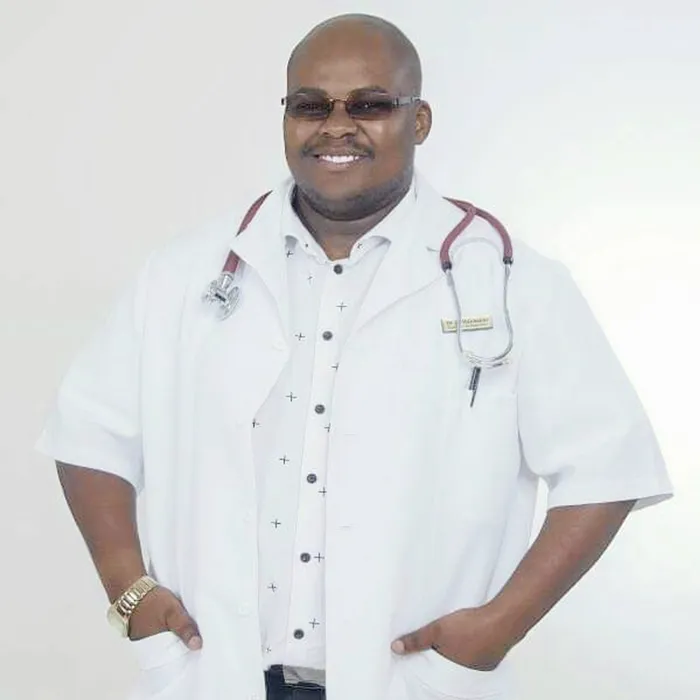Doctor fulfils dream of writing medical book on African skin conditions

Medical doctor Lehlohonolo Makhakhe has written a book on African skin conditions. Medical doctor Lehlohonolo Makhakhe has written a book on African skin conditions.
Free State medical doctor and author Lehlohonolo Makhakhe has fulfilled his life-time goal of writing a medical book on African skin conditions.
Dr Makhakhe, who is a senior lecturer in the dermatology department at the University of Free State, has penned “the first comprehensive African atlas” focused on skin conditions on the continent, inspired by his personal experiences as a dermatologist in South Africa.
“Upon graduating with my first degree in 2007, I was never really satisfied by my dermatology training.
“I always felt like we were missing the basics.
“It was as a general practitioner that I saw a lot of skin conditions and some of the conditions were unnecessary referrals, that should’ve been included in training.
“It was about making knowledge really accessible to your general practitioner,” said Makhakhe.
The book titled African atlas, synopsis and practical guide to clinical dermatology will be the first African dermatology book to be added to the University of Free State curriculum, with the majority of contributors being African doctors.
The third to final-year lecturer said the book aimed at offering decolonised academic material.
“What inspired the book was the lack of decolonised education, we are aware that our curriculum was very much colonised.
“Not to say it was caucasionised but it was more Eurocentric,” he said.
The book has been provincially accepted and endorsed by the university.
Makhakhe said: “Although the book hasn’t been launched because of the Covid-19 pandemic, it has been officially published and is available for third- to fifth-year medical students.”
The book featured more than 20 contributors.
Dr Makhakhe, who is a senior lecturer in the dermatology department at the University of Free State, has penned “the first comprehensive African atlas” focused on skin conditions on the continent, inspired by his personal experiences as a dermatologist in South Africa.
“It was a phased project that included taking photos of different skin conditions.
“We first had to get permission from the ethics department, legislative framework and Free State provincial.
“The first phase was to take pictures of a list of conditions that we typically see in our South African trends.”
Makhakhe wrote the book with the help of many contributors from different facets of medicine.
“The book is 36 chapters long but it is not purely dermatology. We have other departments.
“In a nutshell it was a wholesome of unity to show that all these departments are intertwined.”
Makhakhe described the book as a complex project that took about five years to complete, with the help of about 50 individuals and contributors.
The author expressed his excitement about the completion of the book and hoped that it would be included at other academic institutions of higher learning.
“I am excited about this production; it is one of the highlights of my life, to come in and be the first one to write such a book. Remember the Dermatology Department in Free State was the first such department in the whole of South Africa and was founded in 1968.
“For me to author a book that is the first in the country and continent of Africa is really significant. It’s an honour for me to be a part of this publication,” said Makhakhe.